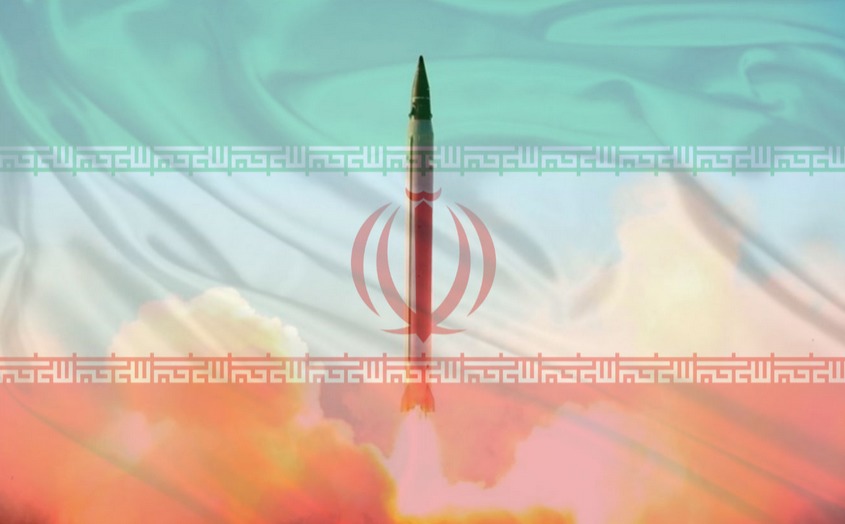Get Real on Iran’s Missile Program - Amir Handjani (Iran)

Last month Iran test fired a new ballistic missile. The Trump administration formally put Iran on “notice” and sanctioned entities close to and within Iran’s Revolutionary Guard (IRGC) they believed were responsible for the missile test. Iran not only escalated its rhetoric but conducted subsequent war games in the Persian Gulf. President Trump and Iran’s Supreme Leader Ayatollah Ali Khamenei have traded barbs. After four years during which the Obama and Rouhani administrations worked on a framework to de-escalate tensions between the United States and Iran, it’s now conceivable to envisage a situation where the war of words and posturing could escalate into a military conflict.
First, it is important not to confuse Iran’s missile program with the Joint Comprehensive Plan of Action (JCPOA). The JCPOA, signed by Iran and the P5+1 in July 2015, only addressed Iran’s nuclear related activity. It put restrictions on Iran’s nuclear program and capped its domestic enrichment for more than a decade. Iran’s missile program – which Iranians view as legitimate means of defense – was a matter neither party could reach consensus on.
As such, U.N. Security Council Resolution 2231 not only endorsed the JCPOA but also ended all previous resolutions, including those prohibiting Iran from conducting ballistic missile tests. Resolution 2231 states that: “Iran is called upon not to undertake any activity related to ballistic missiles designed to be capable of delivering nuclear weapons.” The operative phrase “calls upon” entails no force or urgency, and the resolution further limits this clause to ballistic missiles designed to be capable of delivering nuclear weapons.
It is important to note that in 2010, U.N. Security Council Resolution 1929 explicitly prohibited Iran from conducting ballistic missile tests. In blunt diplomatic terms, it stated: “Iran shall not undertake any activity related to ballistic missiles capable of delivering nuclear weapons, including launches using ballistic missile technology.” The new resolution was more tempered in its language because Russia, China and the European negotiating partners in the P5+1 argued that prohibitions on Iran’s missile program were only there to pressure Iran to curb its nuclear ambition; once achieved, they saw no reason to continuing pushing for it.
In fact, Iran’s missile program is more for deterrence purposes then offensive first strikes. It is Iran’s answer to the legacy of Saddam Hussein’s missiles raining on Iranian cities during a brutal eight-year war with Iraq. Furthermore, while the security of Iran’s neighbors is guaranteed by the United States, Iran has no such assurances from any outside power. As such it must rely on antiquated systems that are often second or third generation Russian or Chinese in origin. Saudi Arabia, Iran’s strategic foe and regional neighbor, spends nine times more annually on its defense budget than does Tehran. Riyadh has the benefit of the very best of Western military technology at its disposal. Its air force has been equipped with long-range air-to-surface missiles that can inflict more damage on Iran’s military infrastructure. The United Arab Emirates, with a population one-tenth the size of Iran, has a defense budget exceeding Iran’s by 50 percent. Iran is outspent and has less sophisticated weaponry then its neighbors. Any serious discussion about its missile program should take this fact into account.
This is not to say that the United States and its allies shouldn’t be concerned with Iran’s missile program. Over time, as Tehran conducts more tests and refines its indigenous capabilities, its missiles will become more potent and accurate. However, like the JCPOA experience has shown, truly multilateral negotiations (where Iran’s legitimate security concerns are addressed alongside those of its Arab neighbors, Israel and – by extension – the United States) would be a far more effective route for the Trump administration to take, as opposed to verbal escalation, sanctions and isolation. Such tactics didn’t work in stopping Iran’s drive to perfect the enrichment cycle, and they won’t work now to stop its missile development.
While it is difficult to imagine a scenario wherein Iran would ever relinquish its ballistic missile program – especially as the rest of the region continues to expand and modernize its military arsenal – it should not be discounted. Should Iran exit the JCPOA and make a dash for a nuclear weapon, it would take years of testing under rigorous conditions before it could put a capable nuclear warhead on a ballistic missile. Such a dramatic step would be picked up by satellite imagery of Western intelligence agencies well in advance. Thus, the United States will retain escalation dominance over Iran for the foreseeable future. This means the U.S. military will maintain supremacy over any Iranian missile strike at each successive rung up the ladder of escalation, all the way up to the point of a nuclear weapons exchange which Iran does not presently have (because of the JCPOA) and has forsworn to ever seek.
The hawks close to President Trump which advocate for a tougher stance with Iran should remember that any arms control agreement like the JCPOA, is voluntary. The Trump administration should heed the lessons of Bush administration, which over-hyped the threat from Saddam Hussein’s weapons of mass destruction to the point where war with Iraq became unavoidable. It would be wiser for Trump to begin engaging in rigorous diplomacy with Iran (as the Obama administration did) and address the issue of the Iranian missile program alongside pressing regional security concerns of both Iran and its neighbors in the region. This will be arduous and difficult – like the negotiations that led to the nuclear deal – and chances of success may be slim as Iran and the United States stand on opposite sides of so many issues. And yet the alternative of escalation, sanctions and confrontation will lead to another war in the Middle East – something Trump explicitly campaigned against, and a promise his supporters endorsed.
https://warontherocks.com/2017/03/get-real-on-irans-missile-program/
Articles from Amir Handjani
View blog
The Trump administration has put into place a punishing new wave of sanctions against Iran that ta ...

The United States has long promised to ensure trade in humanitarian goods for countries under its ec ...

President Donald Trump’s attempt to bring peace and stability to the Middle East has backfired spect ...
You may be interested in these jobs
-
Healthcare Research
Found in: Lensa US 4 C2 - 5 days ago
Clarivate Philadelphia, United States Full timeOverview: · The Analyst for this team will be responsible for production of portfolio of Commercial, Medicare, Medicaid and/or Public Health Exchange medical/pharmacy lives and other data elements on the Market Access Data Team. The analysts have developing skills and knowledge ...
-

Sales Manager
Found in: Lensa US 4 C2 - 6 hours ago
Hubstaff Newark, United StatesAs a Sales Manager in our organization, you will play a crucial role in supporting the VP Sales at Achieve Test Prep. You will be responsible for managing day-to-day operations, and contributing to the overall success of the department. This role requires a proactive individual w ...
-

Product Marketing Manager
Found in: Lensa US 4 C2 - 6 hours ago
OnlineBusiness Reston, United StatesProduct Marketing Manager – DELL – Reston, VA · Marketing specialists are sometimes involved in all elements of promoting, whereas a public relations' worker works specifically with the public relations element of the advertising perform. One of the extra straight-lined career p ...

Comments